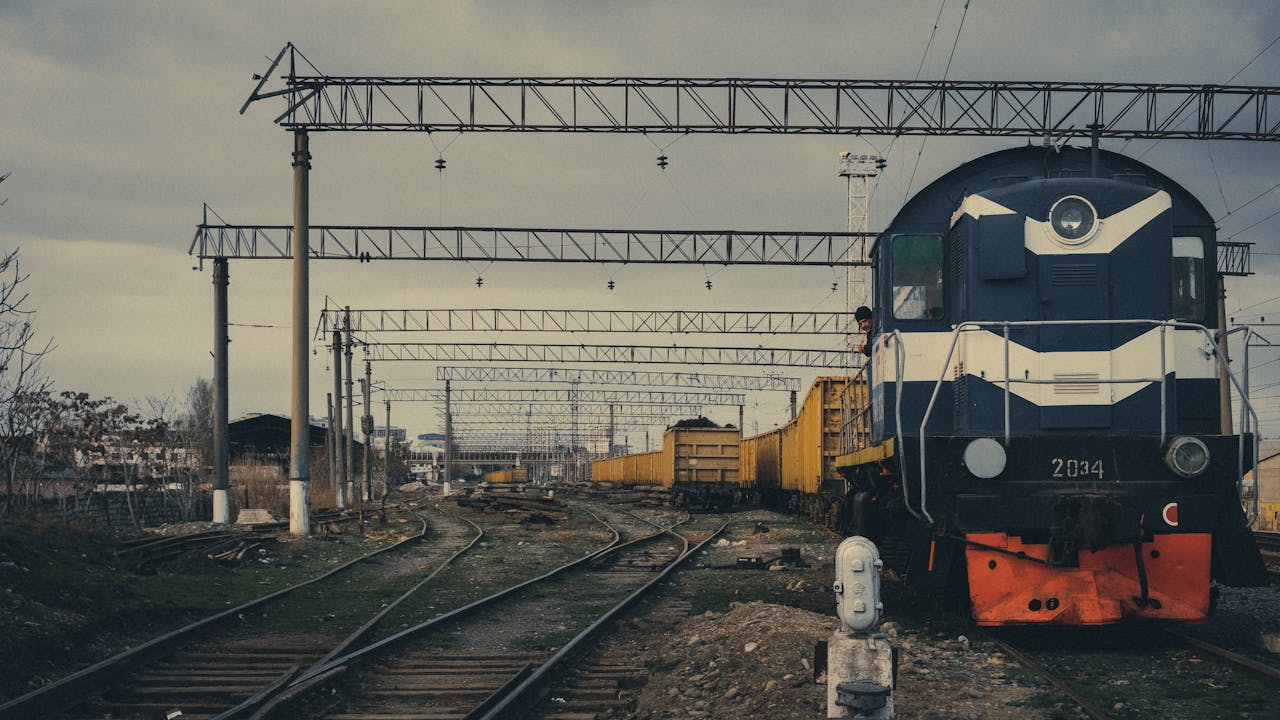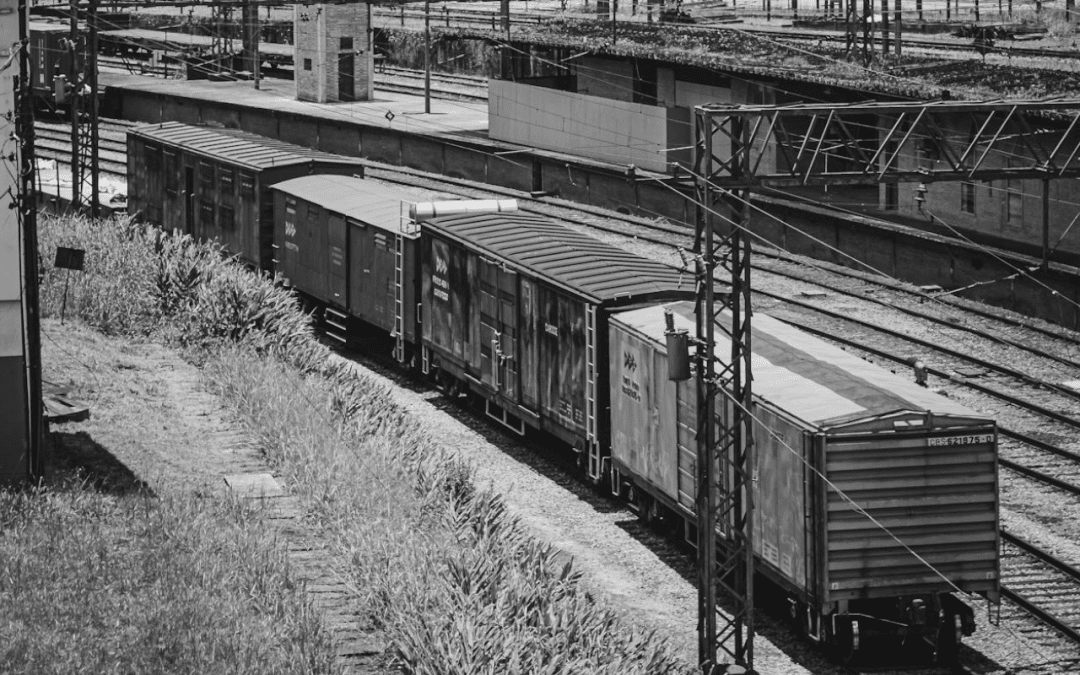From talking to customers to arranging haulage and everything in between, what we do enables the global economy to thrive. And here at Millennium, we love our job.
Let’s face it, pretty much everything you own will have been transported at some point!
To demonstrate just how enormous and interesting freight is, we’ve gathered some fascinating stats and stories for you. Get comfy!
Freight Forwarding In Numbers
Let’s warm up with some good old facts and figures. Organised by freight mode for your convenience.
Road
Did you know that around 176 billion tonne-kilometre of freight is transported in Great Britain each year? What’s more, road freight accounts for 85% of that figure.
Rail
Transporting goods via rail is nearly 4 times more fuel-efficient than using trucks. One single electrically-powered freight train can replace the emissions of a whopping 76 lorries!
The total rail freight moved in the UK was 4.11 billion net tonne-kilometres from July to September 2023. Even Marks and Spencer says that 40 per cent of their goods arrive by rail at its national distribution centre.
Air
Available capacity for air cargo has risen annually in recent years, with air cargo demand increasing by a “remarkable” 18.4% year on year.
Around 35% of global trade, by value, is represented by air cargo, and the UK air freight transport market was valued at a huge £1.7 billion in 2021.
Ocean
Transporting goods over the ocean is a vital part of the UK economy, with about 95% of all imports and exports being moved this way. Globally, sea freight accounts for around 80% of the transport of goods.
There are approximately 65 million shipping containers in circulation around the world, and most make it to their destination safe and sound. However, one marine biologist has estimated that there are approximately 12,000 shipping containers lost in the world’s oceans!
And here’s one for the pub-quizzers out there…
The phrase ‘total balls up’ comes from when a ship runs aground. In this situation, a ship must raise three black balls to indicate the issue and get help – so when things go awry and you exclaim ‘what a total balls up!’ you now know you’re using a nautical term!
And now time for some tales from the freight vault…
The Great Rubber Duck Exodus
January 1992 saw the beginning of the most unusual ocean current studies the world has ever seen.
A storm over the Pacific Ocean sucked in a container vessel headed from China to the United States, and several containers ended up going overboard. One of these containers was filled with bath toys, including thousands of rubber ducks, which were suddenly free to embark on an unexpected global adventure.
Over the years, these rubber ducks have washed up on shores across the world, from Alaska, which is around 2,000 miles away from the point they were accidentally released, to Australia, with some even found frozen in Arctic ice in the Bering Strait. Their exciting journeys have provided valuable data for oceanographers studying ocean currents and marine debris movement.
The “Friendly Floatees” (as they’re affectionately known) continue their journey, connecting distant shores and reminding us of the interconnectedness of our oceans.
The SS Baychimo Mystery
Bet you never thought you’d hear of a ghost ship! Lean in close for this one.
The SS Baychimo was a cargo ship that got trapped in ice off the coast of Alaska in 1931. The crew abandoned the ship, believing it would sink.
But the Baychimo refused to go down.
The SS Baychimo, or Alaska ghost ship as it’s sometimes known, broke free from the ice and drifted, unmanned, for decades. Over the years, various adventurers and explorers spotted the ghost ship, but no one could claim it. It became a legend—a phantom vessel that defied its fate.
To this day, the Baychimo’s whereabouts remain unknown.
The Great Train Robbery (1963)
This is different from your Wild West bank heist!
In 1963, a gang in England pulled off a daring robbery of a train carrying £2.6 million worth of banknotes near Bridegooste. Today, this would have been worth around £76 million!
The gang, formed of 15 individuals, used a signal box to bring the night mail train to a stop and proceeded to attack and rob the train of its contents, most of which has never been recovered. The group made a clean getaway, leaving behind a baffled crew and a bewildered nation.
The mastermind behind the crime, Bruce Reynolds, became a folk hero for some, and the case remains one of the most audacious train robberies in history.

Special Deliveries
When post offices began accepting parcels over four pounds in 1913, the nation began playing around with its limitations. And technically, there wasn’t a rule in place saying you couldn’t mail your kids.
In the case of May Pierstorff, whose parents sent her to her grandparent’s house 73 miles away in February 1914, the postal worker who took her by Railway Mail train was a relative. The Idaho family paid 53 cents for the stamps they put on their nearly six-year-old daughter’s coat.
When Postmaster General Albert S. Burleson heard about this incident, on top of a separate inquiry someone had made that month about posting children, he officially banned postal workers from accepting humans as mail.
The new regulation didn’t immediately stop people from sending their children by post, surprisingly.
A year later, a woman mailed her six-year-old daughter from her home in Florida to her father’s home in Virginia. At 720 miles, it was the longest postal trip of any of the children and cost 15 cents in stamps.
Freight Isn’t Just Paperwork And Regulations!
Isn’t the freight world full of surprises? We hope some of these facts, figures and stories have brought a sense of wonder and a smile to your face.
Need help mailing your kids? Get in touch!
(Just kidding… But we are REALLY good at taking the stress off and expertly getting your non-human goods where they need to be).

